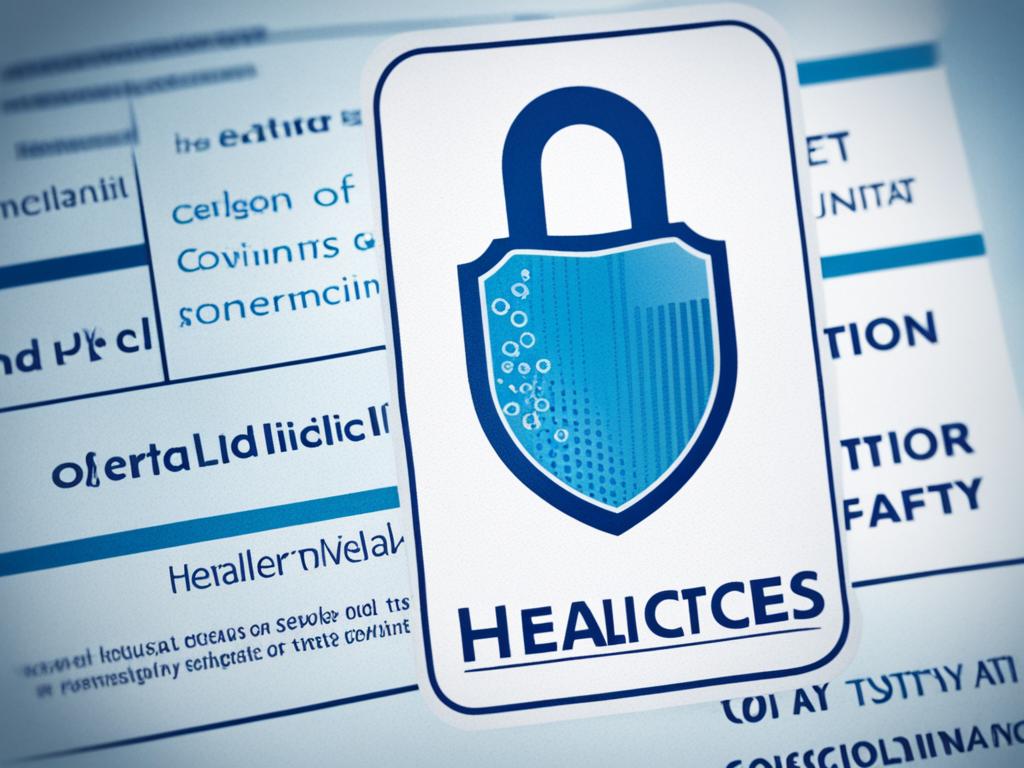The healthcare industry is heavily regulated, with a complex web of laws and regulations that healthcare providers and organizations must navigate. As a healthcare professional, it’s crucial to have a solid understanding of the legal issues that can impact your practice and your patients. This article will provide an in-depth look at the key legal aspects of healthcare, helping you protect your practice and ensure that you are providing the best possible care to your patients.
From HIPAA compliance and patient privacy to medical malpractice and informed consent, the legal landscape of healthcare is vast and ever-evolving. By staying informed on the latest healthcare regulations and legal issues in healthcare, you can better navigate the complexities of the industry and mitigate the risks associated with healthcare liability and medical ethics.
Whether you’re a physician, nurse, or administrative staff member, understanding the healthcare legal framework and patient rights is essential for ensuring the healthcare compliance and healthcare privacy laws that govern your practice. By fostering a culture of ethical decision-making and implementing robust risk management strategies, you can protect your practice and your patients from the potential pitfalls of healthcare policies and medical liability.
Key Takeaways
- The healthcare industry is heavily regulated, with a complex web of laws and regulations that must be navigated.
- Understanding the legal aspects of healthcare, such as HIPAA compliance and patient privacy, is crucial for protecting your practice and patients.
- Navigating medical malpractice and negligence claims, as well as informed consent and patient rights, is essential for providing high-quality, ethical care.
- Maintaining HIPAA compliance and ensuring the security of electronic health records is a critical aspect of healthcare data management.
- Staying informed on the latest healthcare regulations and legal updates is key to ensuring compliance and mitigating risks in your practice.
Introduction to Healthcare Laws and Regulations
As healthcare professionals, it’s crucial to have a comprehensive understanding of the complex web of laws and regulations that govern our industry. These frameworks are designed to protect patient rights, ensure quality of care, and maintain the integrity of the healthcare system. Two key areas of focus are the Health Insurance Portability and Accountability Act (HIPAA) and the importance of patient privacy and confidentiality.
HIPAA Privacy and Security Rules
HIPAA, a federal law, establishes standards for the protection of electronic health information. The HIPAA Privacy Rule sets strict guidelines for how healthcare providers and organizations can use and disclose patient information, while the HIPAA Security Rule requires the implementation of safeguards to protect the confidentiality, integrity, and availability of electronic protected health information.
The Importance of Patient Privacy and Confidentiality
Maintaining patient privacy and confidentiality is of paramount importance in the healthcare industry. Patients must feel secure in sharing their personal and medical information with their providers, knowing that their data will be protected and handled with the utmost care. Adhering to HIPAA regulations and fostering a culture of patient-centered care are essential for building trust and ensuring the continued success of our healthcare system.
Navigating Medical Malpractice and Negligence Claims
As healthcare professionals, we have a responsibility to provide the highest quality of care to our patients. However, even the most diligent practitioners can face medical malpractice or negligence claims, which can have serious consequences for both our practices and our patients. It’s essential that we understand the nuances of these legal issues and take proactive steps to mitigate the risks.
Medical malpractice occurs when a healthcare provider’s actions or omissions result in harm to a patient, and the provider fails to meet the standard of care expected in the medical community. This can include misdiagnosis, improper treatment, or failure to obtain informed consent. Negligence, on the other hand, refers to a healthcare provider’s failure to exercise reasonable care, which can also lead to patient injury or harm.
To navigate these legal challenges, we must be diligent in our practice, adhere to established protocols and guidelines, and meticulously document all patient interactions and treatment decisions. By maintaining thorough records and consistently following best practices, we can demonstrate that we have met the expected standard of care and protect ourselves in the event of a malpractice or negligence claim.
Additionally, it’s crucial that we foster a culture of open communication and transparency with our patients. By keeping them informed about their treatment options, discussing the risks and benefits of each course of action, and actively involving them in the decision-making process, we can build a foundation of trust and reduce the likelihood of misunderstandings or disputes.

Ultimately, the key to navigating medical malpractice and negligence claims is to proactively address potential issues, maintain meticulous records, and prioritize patient-centered care. By taking these steps, we can protect our practices, safeguard our patients, and uphold the highest standards of healthcare delivery.
Informed Consent and Patient Rights
As healthcare providers, it is our responsibility to ensure that our patients are fully informed and empowered to make decisions about their own care. Informed consent is the cornerstone of this process, and it requires us to explain the risks, benefits, and alternatives of any proposed medical procedures or treatments in a clear and transparent manner.
Respecting Patient Autonomy
Respecting the autonomy of our patients is essential. Patients have the right to refuse treatment or make decisions that may go against our medical recommendations, as long as they are of sound mind and fully informed. Our role is to provide the necessary information and guidance, while ultimately respecting the patient’s right to self-determination.
Communicating Treatment Risks and Benefits
Effective communication is key to the informed consent process. We must take the time to thoroughly explain the potential risks and benefits of any recommended treatment, using language that our patients can easily understand. This includes discussing alternative options, as well as the consequences of declining treatment. By empowering our patients to make informed decisions, we can foster a relationship of trust and collaboration, ultimately leading to better health outcomes.
HIPAA Compliance and Data Security
As a healthcare professional, maintaining HIPAA compliance is a critical aspect of ensuring the security and confidentiality of my patients’ electronic health records and other sensitive data. I understand the importance of implementing robust technical, administrative, and physical safeguards to protect the integrity and availability of this information.
Safeguarding Electronic Health Records
One of the cornerstones of my HIPAA compliance efforts is the implementation of stringent measures to secure my patients’ electronic health records. This includes leveraging advanced encryption technologies, regularly updating software and systems, and implementing comprehensive access controls to prevent unauthorized access or data breaches. I also work closely with my IT team to regularly monitor and assess the effectiveness of these security measures, making adjustments as needed to stay ahead of evolving cybersecurity threats.
Business Associate Agreements
In addition to securing my own systems and data, I also recognize the importance of ensuring that my business associates, such as billing companies or IT service providers, are HIPAA-compliant. I have put in place carefully crafted business associate agreements that clearly outline the responsibilities and obligations of these third-party partners when it comes to handling protected health information. By maintaining a thorough vetting process and regularly reviewing these agreements, I can have confidence that my patients’ data is being handled with the utmost care and in full compliance with HIPAA regulations.
Legal Aspects of Healthcare
As healthcare professionals, we must navigate a complex web of laws and regulations that govern our industry. Understanding these legal aspects is crucial for protecting our practice, safeguarding our patients’ rights, and ensuring compliance. In this section, we’ll explore two key areas within the legal landscape of healthcare: understanding healthcare regulations and navigating insurance and billing issues.
Understanding Healthcare Regulations
Healthcare providers and organizations must stay up-to-date on the latest laws and regulations that impact their practices. This includes regulations related to patient privacy, such as the Health Insurance Portability and Accountability Act (HIPAA), as well as those governing billing, reimbursement, and professional liability. By staying informed on these evolving regulations, we can ensure that our practices are operating within the legal framework and minimizing the risk of costly penalties or legal disputes.
Navigating Insurance and Billing Issues
Effectively managing insurance and billing processes is essential for healthcare providers. We must ensure that our services are properly documented and coded to receive appropriate reimbursement from insurance companies and government payers. Navigating the complexities of insurance policies, coverage requirements, and billing procedures can be challenging, but it’s crucial for the financial health of our practices and the ability to continue providing high-quality care to our patients.

Healthcare Fraud and Abuse Prevention
As a healthcare professional, it’s crucial to be vigilant in preventing fraud and abuse within the industry. These unethical practices not only cost taxpayers billions of dollars each year but can also compromise the integrity of the healthcare system and the trust of patients. Two key laws that address healthcare fraud and abuse are the False Claims Act and the Anti-Kickback Statute.
False Claims Act and Anti-Kickback Statute
The False Claims Act is a federal law that prohibits the submission of false or fraudulent claims for payment to the government, including Medicare and Medicaid. This includes billing for services that were not provided, upcoding or misrepresenting the services rendered, or making false statements to obtain reimbursement. Violations of the False Claims Act can result in significant financial penalties and even criminal charges.
The Anti-Kickback Statute, on the other hand, prohibits the exchange of anything of value in an effort to induce or reward the referral of patients for services that are reimbursable by federal healthcare programs. This includes offering or accepting payments, gifts, or other incentives in exchange for patient referrals. Compliance with the Anti-Kickback Statute is essential to preventing fraud and maintaining the integrity of the healthcare system.
As a healthcare provider or organization, it’s crucial to understand and adhere to these laws to avoid legal consequences and protect the wellbeing of your patients. Implementing robust compliance programs, conducting regular audits, and fostering a culture of ethical decision-making are all essential steps in the fight against healthcare fraud and abuse.
https://www.youtube.com/watch?v=BDx0oWL_DCE
Ethical Considerations in Healthcare
As a healthcare professional, I recognize that in addition to the legal aspects of our field, there are also important ethical considerations that we must navigate. Bioethics, which explores the moral implications of new and emerging technologies, is an increasingly vital area of focus as the healthcare industry continues to evolve. At the same time, we must be mindful of the ethical dilemmas surrounding end-of-life care and decision-making, ensuring that we respect patient autonomy and provide compassionate, patient-centered care.
Bioethics and Emerging Technologies
The rapid advancements in medical technology have brought about a host of bioethical challenges that healthcare providers must grapple with. From gene editing to artificial intelligence, the ethical consequences of these innovations require careful examination. As a healthcare professional, I’m committed to staying informed on the latest bioethical debates and engaging in thoughtful discussions with my colleagues to ensure that we approach these technologies with the highest ethical standards.
End-of-Life Care and Decision-Making
Caring for patients at the end of their lives is a profoundly meaningful and deeply personal experience. Navigating the ethical considerations surrounding end-of-life care, such as pain management, palliative care, and advance directives, demands empathy, sensitivity, and a steadfast commitment to respecting patient autonomy. As a healthcare provider, I strive to create an environment where patients and their loved ones feel heard, supported, and empowered to make informed decisions that align with their personal values and preferences.

Risk Management and Liability Protection
As a healthcare professional, effective risk management and liability protection are essential to safeguarding your practice and your patients. Two critical components in this regard are meticulous patient care documentation and maintaining appropriate professional liability insurance.
Documenting Patient Care
Thorough and accurate documentation of patient interactions, treatments, and outcomes is crucial for protecting healthcare providers in the event of a malpractice or negligence claim. By meticulously recording all relevant details, you create a comprehensive record that can serve as evidence and help defend against any legal challenges. Keeping detailed notes, maintaining accurate patient files, and documenting informed consent procedures are all integral to effective risk management.
Professional Liability Insurance
Maintaining appropriate professional liability insurance is a vital safeguard for healthcare providers and organizations. Also known as medical malpractice insurance, this coverage can provide financial protection in the event of a legal dispute or claim, helping to cover the costs of legal fees, settlements, or judgments. Reviewing your insurance policies regularly and ensuring adequate coverage is crucial to mitigating the financial risks associated with potential lawsuits or liability issues.
International Healthcare Laws and Regulations
As the healthcare industry becomes increasingly global, it’s crucial for medical professionals and healthcare organizations to understand the legal and regulatory landscape in other countries. Different jurisdictions often have their own unique laws and regulations governing healthcare practices, patient privacy, and various other key areas. Healthcare providers who work with international patients or facilities must be acutely aware of these differences and ensure strict compliance with the applicable laws and regulations.
Navigating the complex web of international healthcare laws can be a daunting task, but it is essential for delivering high-quality, ethical care to patients worldwide. By staying informed on the latest regulatory changes and best practices, healthcare practitioners can protect their practices, safeguard patient rights, and maintain the integrity of the global healthcare system.
Whether you’re treating patients from abroad, collaborating with international medical facilities, or expanding your practice into new markets, understanding the nuances of international healthcare laws is a critical component of success. By prioritizing compliance and staying attuned to the evolving legal landscape, you can provide seamless, patient-centered care that meets the highest standards of care across borders.

Continuing Education and Legal Updates
As a healthcare professional, it’s crucial to stay on top of the ever-changing landscape of laws and regulations that govern our industry. Engaging in ongoing continuing education and closely monitoring the latest legal updates is essential for maintaining compliance and effectively navigating the complex legal challenges that may arise in our practices.
Staying Informed on Changing Laws
The healthcare industry is subject to a constant stream of legislative and regulatory changes, from new patient privacy laws to evolving guidelines on medical billing and reimbursement. By making a concerted effort to stay informed, we can ensure that our practices and procedures remain aligned with the most current legal requirements.
This commitment to lifelong learning can take many forms, from attending industry conferences and workshops to subscribing to newsletters and alerts from trusted legal and regulatory authorities. Regularly reviewing resources like the American Medical Association’s “Health Law” publication or the Centers for Medicare & Medicaid Services’ policy updates can help us anticipate and adapt to emerging legal issues in a timely manner.
Ultimately, our ability to provide the highest level of care while safeguarding our patients’ rights and our own legal protections hinges on our willingness to continuously educate ourselves and adapt to the evolving legal landscape of healthcare. By embracing this mindset of ongoing learning and vigilance, we can navigate the complexities of the industry with confidence and
ensure that our practices remain compliant and patient-centric.
Conclusion
As a healthcare professional, I’ve come to appreciate the critical importance of understanding the legal aspects of our industry. Navigating the complex web of laws, regulations, and ethical considerations is essential for protecting my practice, safeguarding my patients’ rights, and ensuring the overall integrity of the healthcare system. By staying informed on the latest legal updates, implementing robust risk management strategies, and fostering a culture of ethical decision-making, I can confidently provide the highest quality of care to my patients.
Throughout this article, we’ve explored the various legal issues that impact the healthcare industry, from HIPAA compliance and patient privacy to medical malpractice and healthcare fraud. I’ve learned that diligence, thorough documentation, and a commitment to continuous education are the keys to successfully navigating this ever-evolving landscape. By embracing these principles, I can ensure that my practice not only meets the legal requirements but also upholds the ethical standards that are so integral to our profession.
As I look to the future, I’m excited to see how the legal and regulatory landscape of healthcare will continue to evolve, and I’m dedicated to staying at the forefront of these changes. By remaining vigilant, adaptable, and focused on the needs of my patients, I’m confident that I can provide the best possible care while also protecting my practice and upholding the highest standards of the healthcare industry.
FAQ
What are the key legal aspects of healthcare that healthcare providers and organizations need to be aware of?
What is the HIPAA Privacy Rule and how does it impact healthcare providers?
What is medical malpractice, and how can healthcare providers mitigate the risk of such claims?
What is informed consent, and why is it a critical aspect of healthcare?
What are the key requirements for HIPAA compliance, and why is it important for healthcare providers and organizations?
What are some of the key legal and regulatory issues that healthcare providers and organizations must navigate?
What are the key laws and regulations addressing healthcare fraud and abuse, and why is it important for healthcare providers to understand them?
What are some of the ethical considerations that healthcare providers and organizations must navigate?
What are some key strategies for effective risk management and liability protection in healthcare?
What are some of the legal and regulatory considerations for healthcare providers and organizations working in an international context?
How can healthcare providers and organizations stay up-to-date on the latest legal and regulatory changes in the healthcare industry?
Source Links
- https://www.hhs.gov/hipaa/for-individuals/guidance-materials-for-consumers/index.html
- https://www.apu.apus.edu/area-of-study/security-and-global-studies/resources/what-is-health-law/
- https://nursingcecentral.com/five-legal-issues-in-nursing-everyone-needs-to-know/

